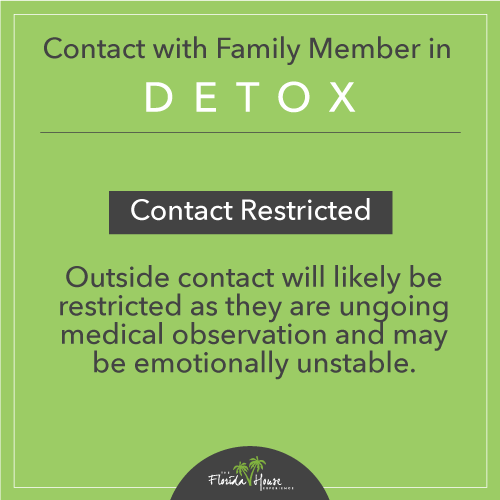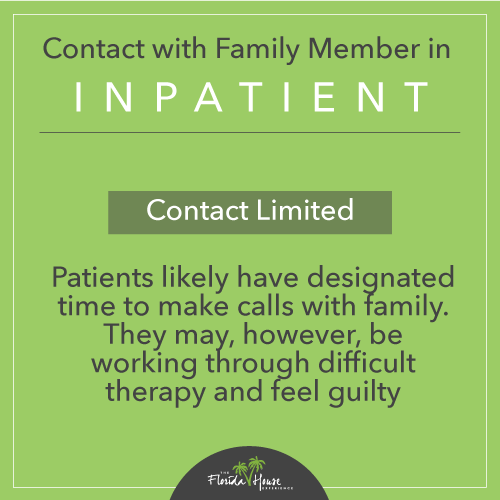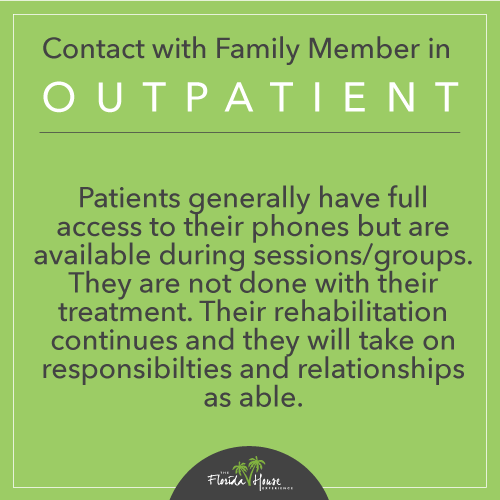
Living with a family member who suffers from addiction can be deeply troubling. It’s very challenging to watch someone fall into a seemingly bottomless spiral and refuse help, particularly if consequences to jobs, financial stability or relationships start to develop. You may beg, plead or bargain, but when addiction is at its depths, it’s almost impossible to get through.
When a family member struggling with addiction makes the choice to get help, it can be exhilarating — and it can be easy to assume that this choice means the end is near. However, going to treatment often means the fight is just beginning. Here’s what you can do to support your family member who is entering the treatment process.
The Stages of Treatment
For those who are new to the world of addiction, rehabilitation may seem like a magical solution. People go into rehab, spend time in a treatment program and come out happy, healthy and normal. Right?
In reality, rehabilitation is a far more complex process, and its success can vary based on the individual entering treatment, the circumstances behind addiction, personal convictions and the treatment center itself. Some programs are more effective than others, and some people are in a better position to succeed. Regardless, the outcome of rehabilitation is anything but certain.
As a family member, it’s important to understand the stages of a standard rehabilitation program and what to expect in terms of emotions, experiences and your loved one’s needs.
Detox
 Detox is the first stage of most rehabilitation programs and is centered around helping participants overcome withdrawals in a safe and healthy manner. As withdrawing from some substances, like alcohol and benzodiazepines, can be dangerous when handled unsupervised, detox is integral to helping individuals get clean before beginning to tackle the emotional and psychological components of recovery.
Detox is the first stage of most rehabilitation programs and is centered around helping participants overcome withdrawals in a safe and healthy manner. As withdrawing from some substances, like alcohol and benzodiazepines, can be dangerous when handled unsupervised, detox is integral to helping individuals get clean before beginning to tackle the emotional and psychological components of recovery.
Detox is a very challenging time for those in rehabilitation. Withdrawal can be deeply uncomfortable and may come with mood swings, anger or sickness. Cravings are intense, leading to unhappiness and resentment for the treatment process. Many substance users struggle during this stage and may lash out against friends and loved ones.
Visiting in Detox
Many treatment centers do not permit visitors during this time to encourage a full focus on wellness. Space is often suggested in detox, so if you are allowed to visit, do so sparingly.
Inpatient Rehabilitation
Inpatient rehabilitation, also known as residential treatment, is what most people think of when they picture a rehab facility. During this time, your family member will be living and building camaraderie with others in the same position. He will be attending group therapy and individual therapy and may also be taking part in holistic therapies like art therapy, music therapy and acupuncture.
Inpatient treatment generally spans two to six weeks and is intended to provide stability and a healthy mindset. Participants learn coping methods, uncover the underlying causes behind drug abuse and employ new techniques to manage stress without turning to substances. This is not an easy road but, when completed successfully, is critical to ongoing sobriety.
Visiting in Inpatient Rehabilitation
 Most inpatient programs will permit visitors, but how and when depends on center policies. Some will allow visitors from the first days, but others may not allow outside contact until a certain task- or time-based landmarks are achieved. Visits from family and family support are often considered integral to success in rehab, so don’t hesitate to visit if the time is appropriate to do so. If your loved one relies on family contact and it doesn’t interfere with treatment outcomes, visit as often as you like.
Most inpatient programs will permit visitors, but how and when depends on center policies. Some will allow visitors from the first days, but others may not allow outside contact until a certain task- or time-based landmarks are achieved. Visits from family and family support are often considered integral to success in rehab, so don’t hesitate to visit if the time is appropriate to do so. If your loved one relies on family contact and it doesn’t interfere with treatment outcomes, visit as often as you like.
Information on visiting hours will be provided by the center your loved one has chosen and can vary from several times a week to a large block of time every day. Be sure to ask questions about patient schedules before planning a visit; most of the day will be occupied with therapy, and most programs hesitate to remove participants from critical courses of treatment to see visitors.
Note that participants are often permitted to determine who they would like to see and when visitors should be allowed. If you are not on an approved list, don’t take it personally. Recovery is an individual process, and it’s important for those in treatment to take whatever measures they feel are necessary to get well. If they feel space is best, give them space without resistance.
Outpatient Rehabilitation
 During outpatient care, participants don’t have to reside in a treatment center and thus will have far more access to friends and family. Living at home during treatment is an option, but this doesn’t mean things will go right back to normal.
During outpatient care, participants don’t have to reside in a treatment center and thus will have far more access to friends and family. Living at home during treatment is an option, but this doesn’t mean things will go right back to normal.
Day-to-day life in outpatient rehabilitation is still dominated by recovery activities. Partial hospitalization and intensive outpatient programs require anywhere from 10 to 30 hours of treatment per week, creating a large time commitment. In this time, attention and focus will still be on recovery. While social plans are possible, don’t attempt to detract from rehabilitation efforts. If your family member doesn’t want to dedicate significant time to socialization after treatment, accept this without allowing personal emotions to intervene.
Note that some members of outpatient programs will choose to live in sober living houses rather than at home. This is absolutely okay and should not impact your perspective of your loved one. All decisions made during recovery are made with an individual’s preferences and needs in mind, so don’t take this personally.
Support Following Rehabilitation
After all stages of rehabilitation are complete, it’s only natural to assume that the journey is over, sobriety is guaranteed and all’s well that ends well. However, this is not necessarily the case. Recovery is a lifelong quest, and the early stages are often the most challenging. Your family member needs your support and love, not your judgment or anger over the situation. Remember that your behavior can have a direct impact on success in sobriety, so don’t use this time to unearth old fights or let loose pent-up emotion.
While it’s only natural to be concerned about life choices, don’t be overbearing. Don’t ask constant questions about behavior and habits, don’t express doubts about judgment and critical thinking, and don’t act accusatory or infantilize your family member. If you see clear signs of abusive behavior, it may be time to take action, but unless this happens, allow your loved one the freedom to make his own choices without inappropriate oversight.
Supporting a family member during rehabilitation isn’t easy, but your positive attitude, love and guidance can absolutely make a difference. Give your family member the space necessary to focus on treatment while still making it clear that you care and are going to continue to be a present and positive force in his life.






